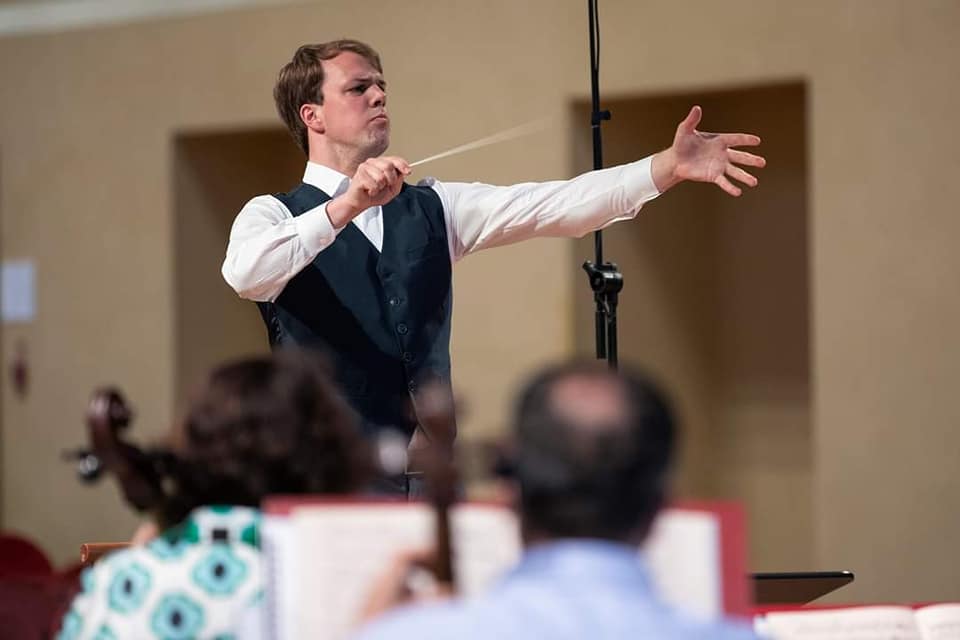Watch live: Grieg concerto played live by Nobu, who is blind
mainExtraordinary. His name is Nobuyuki Tsujii.


Extraordinary. His name is Nobuyuki Tsujii.

The Finnish music world is in mourning for…

Singers’ agents tell us of a tsunami of…

The city of Würzburg has been shaken by…

Here’s a happy holiday story. The young Austrian…

Session expired
Please log in again. The login page will open in a new tab. After logging in you can close it and return to this page.
Wonderful!!!!I have his Carnegie hall debut on DVD!
I was once fortunate enough to hear Tamás Érdi live. Also a most impressive musician and also blind.
Terrific! Blind or not, it was a fine, exciting, lovely, warm performance. How did he learn it? That’s what I would like to know. The Tchaikovsky was good – up until the very end where the conductor tastelessly speeds up in the last few bars. Young conductors — blech!
I have been following the career of Nobuyuki Tsujii (Nobu) for many years and am somewhat of an expert 🙂 In response to ” How did he learn it? ” — He learns every work by ear, but not from listening to others’ performances. The notes ON EACH HAND, separately, are recorded, a few bars at a time, by someone (formerly his teacher but now a staff). Nobu listens to these recordings (on cassette tapes) and learn the notes as you and I would from reading a score, then he puts everything together in his head. (The tapes are annotated with information such as the tempo, the expression, etc.) It is actually even more astonishing how he syncs with the orchestra, but all this has been written up on his wikipedia page https://en.wikipedia.org/wiki/Nobuyuki_Tsujii (by Yours Truly 🙂
I’d be interested to know how other blind pianists and organists learn their works. A prominent performer in my youth was Michel d’Alberto, though we hear little of him these days. A blind organ student at my university learned his works via braille. God knows how, really.
There was the famous german organist Helmut Walcha,of course,who made tons of recordings for the DG Archiv Produktion label.
There somehow appears to be a long “tradition”, if one might say so, of blind organists. There was of course the Institut de jeunes aveugles in Paris, where many a fine French organist was trained. They have probably been using braille for almost as long as it exists. A friend of mine is a blind singer and he uses either braille or prerecorded parts to learn his lines.
In a 2009 ‘Time’ Magazine article http://content.time.com/time/world/article/0,8599,1940215,00.html, this is written: “Tsujii can use Braille music scores to learn new pieces, but this kind of translation is usually done by volunteers. Because demand is so low, the variety of scores available does not meet the needs of a professional performer, so Tsujii has devised his own method. A team of pianists records scores along with specific codes and instructions written by composers, which Tsujii listens to and practices until he learns and perfects each piece.” I believe Nobu’s method of learning from custom-made audio scores is unique among the visually impaired. It is possible for him to learn by ear that way because he has absolute pitch and can repeat a note he hears accurately. Nobu has also said that at his level, learning by touching a braille score is too slow.
As far as I’m aware, Michel Dalberto wasn’t blind.
Are you perhaps thinking of another French pianist, Bernard D’Ascoli??
D’oh! You’re right. Thanks for that.
Is this a surprise? He was co-gold medalist in the 2009 Cliburn with Haochen Zhang.
Thank you, Mr. Lebrecht, for giving Nobuyuki Tsujii (Nobu) your kind recognition. Much appreciated by his many loyal international fans — https://sites.google.com/site/nobufans/